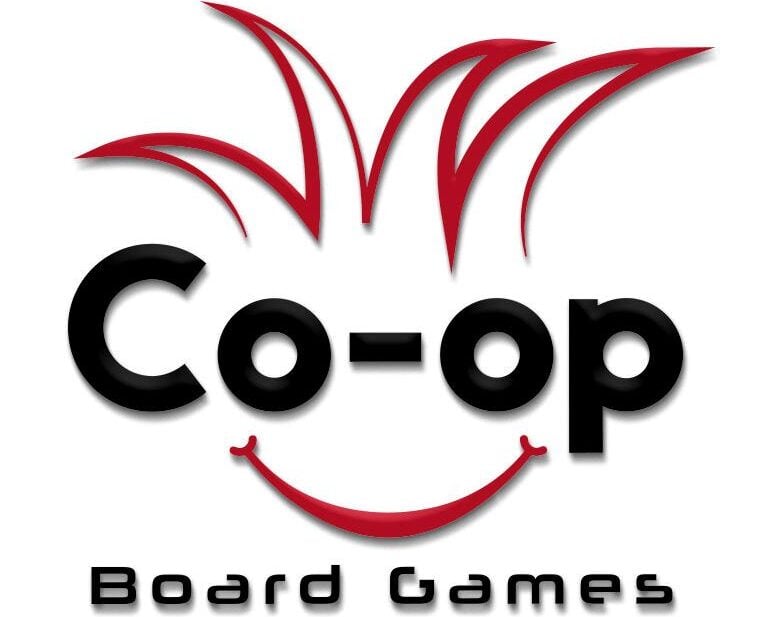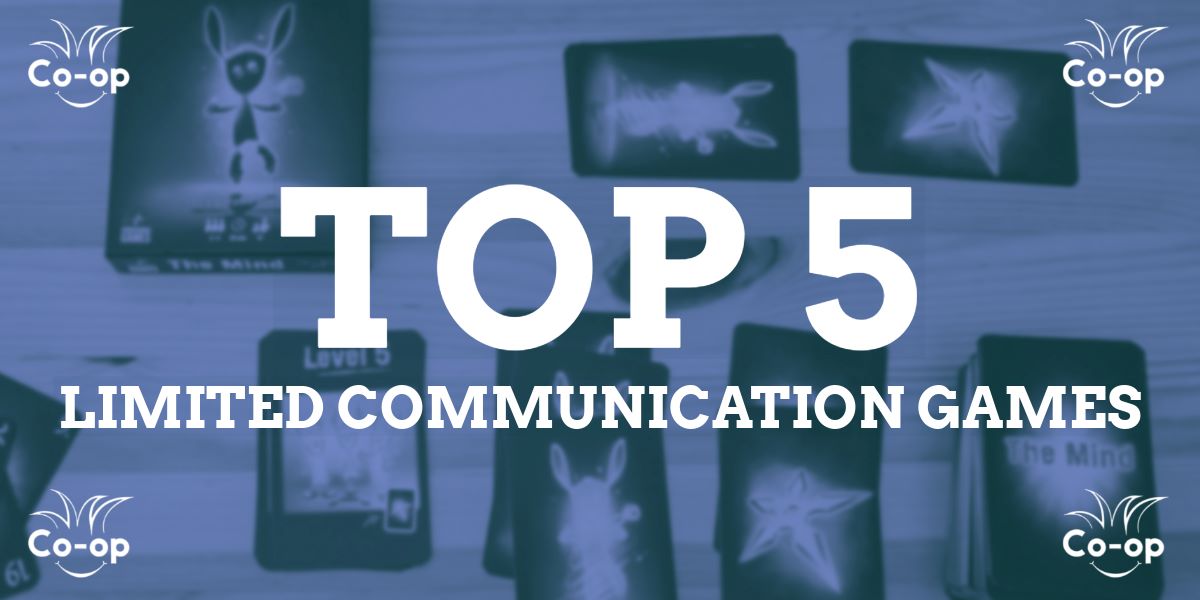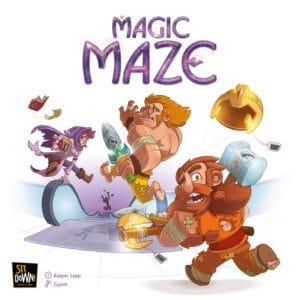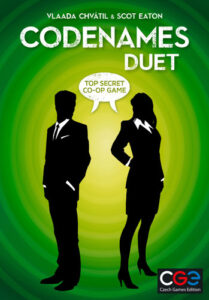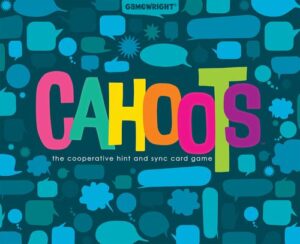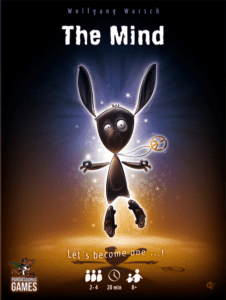Top 5 Cooperative Limited Communication Games
I’m pretty sure everyone I play games with loves limited communication card and board games. These games are usually quick, intense, and they are very replayable. They’re also usually smaller than other types of board games, so they get played more often than bigger and longer games.
I’ve heard some people say that limited communication games are the only truly cooperative board games because the only way you can win is if everyone does their part to help the team. Most of these games avoid the dreaded alpha gamer / quarterbacking issue because the rules clearly state that you can’t tell others what to do on their turns.
Let’s get to the list, shall we? Here are my group’s Top 5 Limited Communication Games!
5. Magic Maze
Year: 2017 | Players: 1-8
Magic Maze is the only game on this list that isn’t a small card game. This is a cooperative real-time game in which you’re attempting to steal equipment from a shopping mall and get out before time runs out. Everyone has one type of movement that they control and can move any of the characters in that direction. The only way to communicate with others is with a big red pawn, which tells them that you think they should move one of the characters.
Magic Maze is a unique take on the limited communication genre and it is one of my group’s top real-time board games.
Read our Magic Maze review!
Get your copy of Magic Maze here!
4. Codenames Duet
Year: 2017 | Players: 2-4
Codenames Duet is one of the best cooperative board games for two players, but it can easily be play by more. It’s a deduction game in which you have to try to let your teammate(s) know where your secret agents are located by giving them clues. The agents are represented by single words, so what you’re trying to do is come up with clues that work with two or more of your secret words each round.
Codenames Duet is a blast to play and it’s probably my group’s favorite version of Codenames.
Read our Codenames Duet review!
Get your copy of Codenames Duet here!
3. Cahoots
Year: 2018 | Players: 1-4
I’ve played Cahoots so many times and with so many people. In this card game you’re attempting to work together to complete goals by setting up a series of colors and numbers. That doesn’t sound very exciting, but what makes it fun is that you always have multiple clue cards showing so you have to figure out which ones you should be going for as a team. Cahoots is a light, challenging, and highly replayable co-op for gamers and non-gamers of all ages.
Read our Cahoots review!
Get your copy of Cahoots here!
2. Hanabi
Year: 2010 | Players: 1-5
I don’t know if Hanabi was the one that started it all, but I do know that it’s the game that got my group into limited communication games. In this game you have to hold your cards so they’re facing your teammates and everyone needs to help each other figure out what they’re holding. You’re trying to play cards into different colored stacks from 5 to 1 without making too many mistakes. I really like seeing how people set their cards up in their hands to attempt to remember what numbers and colors they have.
Read our Hanabi review!
1. The Mind
Year: 2018 | Players: 2-4
The Mind is easily my group’s favorite limited communication game right now. The concept is simple: As a group you try to play all of your cards in ascending order. The twist is that you have no idea what everyone has so you have to read each other and try to play the cards in the right order. You start out with just one card in the first round, which is a very tough round usually, and then you’ll add a card to each hand in each subsequent round.
The Mind is awesome. It’s just a deck of cards numbered 1 to 100, but the game itself feels like a deep team experience. You really do have to play it to know how different it is.
Read our The Mind review!
Get your copy of The Mind here!
Honorable Mentions
Mysterium – The only reason Mysterium isn’t in the top 5 is because only one player, the ghost, is limited in what they can say to the group. This is a fantastic game, though, and one that’s definitely worth checking out if you want a modern co-op version of Clue. (read our Mysterium review)
The Game – If it weren’t for The Mind, The Game would definitely be on the list. The two games kind of scratch the same itch, though. (read our The Game review)
